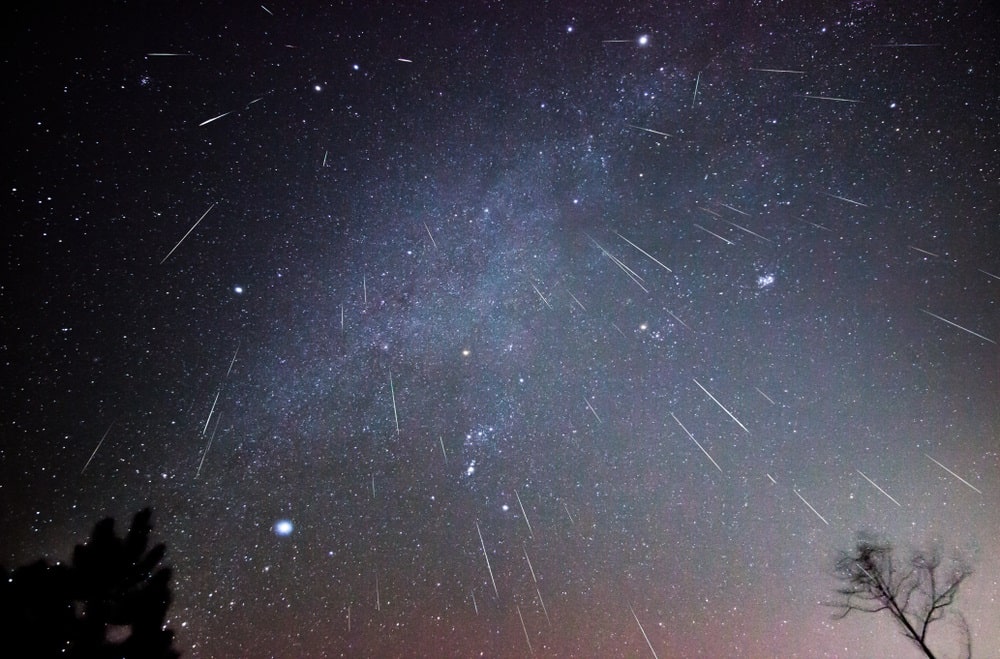Sky aficionados and stargazers have something spectacular to record on their calendars as the year draws to a close: the peak of the Geminid Meteor Shower, which is expected to light up the night skies on December 14, 2023.
A Celestial Display
The Geminid meteor shower, which is regarded as one of the most brilliant of the year, comes from an uncommon source: the asteroid 3200 Phaethon. Unlike other meteor showers that stem from comet debris, the Geminids’ origins trace back to this intriguing asteroid.
Optimal Viewing Conditions
This year’s peak promises an impressive display, with an expected rate of up to 120 meteors per hour under ideal conditions. The radiant point, in this case the constellation Gemini, rises higher in the sky after midnight, according to astronomers, making this the ideal time to observe.
Advice for Observation
Locate yourself somewhere with an unhindered view of the sky, away from city lights, for the finest viewing experience. Bundle up warmly, bring a comfortable chair or blanket, and allow your eyes at least 20 minutes to adjust to the darkness. Patience is key; meteor showers can be sporadic, so relax and enjoy the celestial show.
Capturing the Moment
Capture the brilliance of the Geminids with a camera equipped with manual settings and a wide-angle lens. Consider long-exposure shots to increase the chances of catching a meteor streaking across the sky. Remember to bring extra batteries and a tripod for stability.
Connecting with the Universe
Meteors from the Geminid shower are often bright and colorful, making this an awe-inspiring event for skywatchers of all ages. Whether alone or with friends and family, witnessing the cosmic display can be a profound reminder of our place in the vastness of the universe.
Conclusion:
As the Geminid Meteor Shower reaches its zenith on December 14, 2023, it offers a splendid opportunity to marvel at the wonders of the cosmos. Take a moment to step outside, gaze up at the night sky, and witness nature’s breathtaking light show – a celestial symphony marking the end of the year with a celestial flourish.


Share:
Beaver Moon: Illuminating the Night Sky on November 27, 2023
December Solstice 2023: A Guide to the Celestial Event